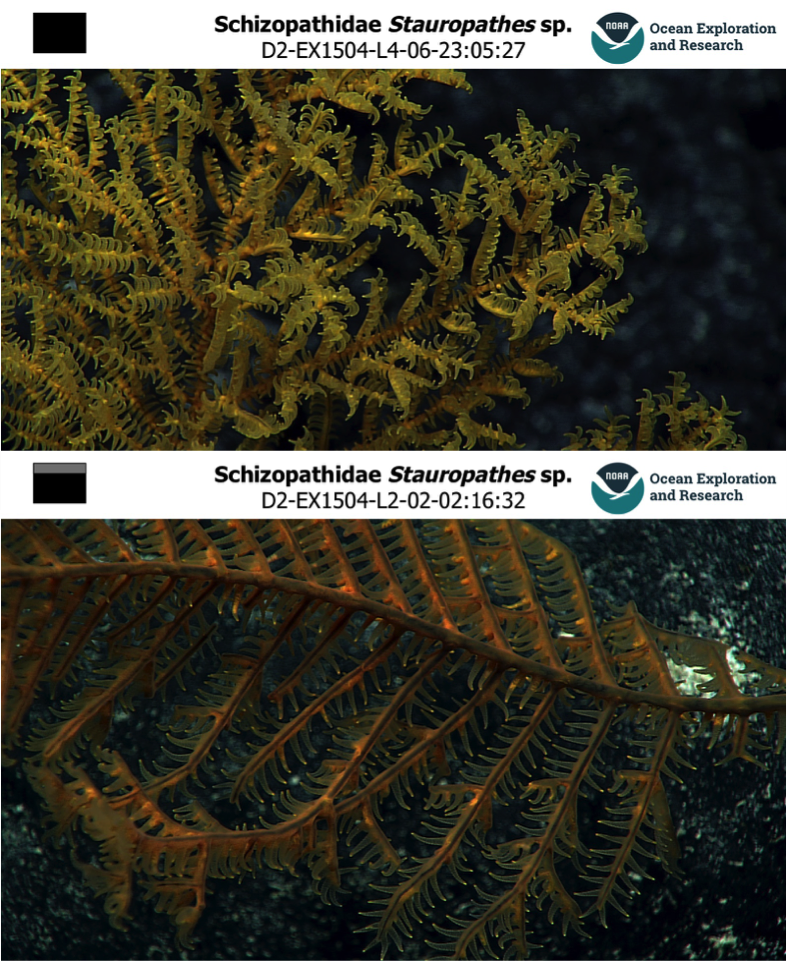With lifespans as long as 4,000 years, deep-sea black corals are some of the longest-living creatures on earth. They are also some of the world’s most threatened species. That’s why Ocean Genome Legacy (OGL) is embarking on a new initiative to preserve, document, and archive these beautiful corals.
Black corals come in myriad bright, beautiful colors that cover their dark skeletons. Unfortunately, these skeletons are highly prized for jewelry, and black corals are under threat by illegal and destructive harvesting methods.

To protect these species from piracy, the National Fish and Wildlife Foundation awarded OGL a grant to build a reference DNA collection of black corals. OGL’s collection of legally obtained, well-documented black coral DNA samples can help scientists and law enforcement identify unknown samples for conservation purposes as well as basic research. OGL already holds 22 DNA samples from 12 black coral taxa, including samples collected by National Oceanic and Atmospheric Administration’s Okeanos Explorer.
To publicize the initiative, OGL’s Dr. Charlotte Seid presented at the 6th International Deep-Sea Coral Symposium to discuss new areas of collaboration with coral researchers. OGL eagerly awaits the newest black coral DNA samples from the Okeanos Explorer’s 2016 research cruises, and we look forward to supporting both science and conservation by building this valuable coral DNA collection.
The OGL biorepository works with scientists around the globe to preserve valuable DNA samples that can lead to new cures and discoveries. Please consider helping us protect the biodiversity of our marine life by making a gift.
